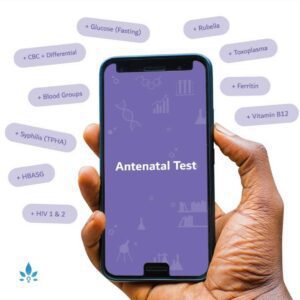What is Autism?


The thought that your child may have autism can cause apprehension in any parent, especially since current research shows that autism is on the rise. Parents are often the first to sense a problem with their child’s development, so it’s important to be aware of the characteristics and warning signs of autism.
Autism, also known as an autism spectrum disorder, is a developmental disability that affects normal brain development. It is characterized by impairments in social interaction and communication, as well as repetitive behavior that appears before age 3.
The degree of impairment can range from mild to severe. Some children show subtle signs from infancy, while others develop normally until about 24 months and then stop developing new skills or lose previously acquired skills.
The following are some of the common early symptoms of autism. Not all children with autism will display all of the same symptoms.
Social Interaction:
- Doesn’t participate in back and forth games (like peek-a-boo) or gestures (i.e., waving)
- May not make eye contact or exchange smiles
- Lacks interest in interacting with other people
- Often prefers to play alone instead of with others
Communication:
- Doesn’t gesture to express a need
- Doesn’t point to show something to someone else
- Babbling and/or speaking is delayed
- Repeats what others say (echolalia)
Behavior:
- Demonstrates unusual, repetitive body movements (i.e., hand flapping, spinning, rocking)
- Seems intensely obsessed with certain objects (i.e., arranging toys in a specific way, spinning wheels of a car)
- Is easily upset by change or when routines aren’t strictly followed
- Has severe temper tantrums, sometimes with self-injurious behavior (i.e., headbanging)
Some kids with autism could also have intellectual disabilities, attention difficulties, and motor coordination issues. They might also have a hard time responding appropriately to certain sounds, sights, smells, tastes, textures, or movements.
So when should you be concerned? The red flags below are potential risk factors.
Not babbling or responding to his or her name by 12 months old
Not gesturing by 14 months old. Gesturing includes waving and pointing to show objects to others
Not using single words by 16 months old
Not engaging in pretend play by 18 months old (i.e., pretending to feed a doll)
Not using 2-word phrases spontaneously by 24 months old
Losing social skills or language skills
If your child demonstrates warning signs, don’t hesitate to discuss your concerns with your pediatrician and have your child evaluated for autism. Detecting autism early on is critical, as research shows that early intervention can have significant benefits.
Sources:
- American Psychiatric Association
- (2000)
- Pervasive developmental disorders
- In Diagnostic and statistical manual of mental disorders (Fourth edition, text revision DSM-IV-TR)
- Washington, DC: American Psychiatric Association, 69-70.
Autism Speaks - Symptoms of Autism.
Centers for Disease Control and Prevention - Autism Spectrum Disorders: Signs and Symptoms.
National Institutes of Health - Autism.
Powered by Bundoo®












































